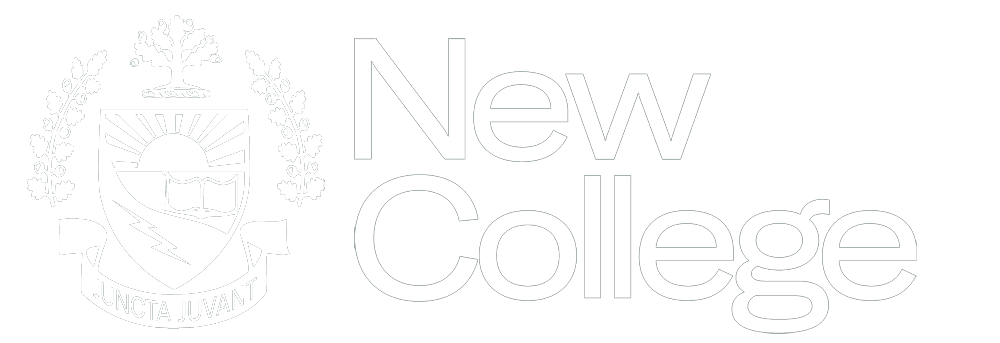As a student in the Faculty of Arts & Science at U of T, you have an array of courses and programs available to you.
There are over 2,000 courses to choose from and over 300 programs in which to study.
With so many options, keep the following in mind when deciding on courses for your first year.
Know Where to Find the Correct Info Online
The Faculty of Arts & Science Calendar is the key to understanding your degree requirements, the rules of the faculty and information about courses and program requirements.
The Registration Instructions & Timetable gives you scheduling, course enrolment and fee payment information and lists the course schedules and enrolment controls. It also includes all of the important sessional dates, such as deadlines to enrol and to cancel courses.
The Calendar, Registration Instructions and Timetable are available online to review.
Think About What Programs You’re Interested In
When you applied to U of T, you likely had an idea of what area of study (science, social science, humanities, commerce) you’re interested in. Most programs require first year courses and you should build your enrolment plan around these courses. First year is also a great time to explore topics you’re interested in, and by choosing wisely, you can begin satisfying breadth requirements.
Assess Your Interests and Strengths
Think about courses you liked best in high school and give yourself an opportunity to explore those subjects. One of the advantages of being in the Faculty of Arts & Science is that you can combine different types of programs. You may have decided to do a major in science, such as Chemistry, but you can add another major in the humanities, for example English or History.
Consider Your Course Load
A full-time course load is 3.0–5.0 full course equivalents (FCEs). Most students take 5.0 FCEs a year in order to complete their degree in four years. But many students decide to take a lighter course load. Students enrolled in 3.5 FCEs or fewer will be charged a per course fee (with the exception of upper year Commerce students), students enrolled in 4.0FCEs will be charged a program fee.
Keep Your Options Open
You’ll apply for your specialist, major or minor, program(s) once you’ve completed at least 4.0 credits. When choosing your courses for first year, pick those that give you the prerequisites and background for more than one program in second year. Unless you plan to do a specialist, you need to do more than one program for your degree. You may also discover a new area of study that you love but may have never considered for your degree.
Get to Know ACORN
ACORN stands for Accessible Campus Online Resource Network. This is where you enrol for courses, update your personal information, find your grades and, transcripts and access your fee information and invoices.
First-Year Courses—Examples
Life Sciences
BIO120H1 + BIO130H1
CHM135H1 +CHM136H1
MAT135H1 + MAT136H1
PHY131H1 + PHY132H1
+ 1.0 FCE elective
(e.g., breadth requirement, First Year Foundations seminar or New One)
Commerce
ECO101H1 + ECO102H1
MAT133Y1
RSM100H + RSM219H1
RSM230H1 + RSM250H1
+ 1.0 FCE elective
(e.g., breadth requirement, First Year Foundations seminar or New One)
Humanities/Languages
ENG140Y1
FSL100H1 + FSL102H1
HIS101Y1
PHL100Y1
+ 1.0 FCE elective
(e.g., breadth requirement, First Year Foundations seminar or New One)
Social Science
GGR107H1 + GGR124H1
POL101H1+ POL107H1
SOC100H1 + SOC150H1
+ 2.0 FCE electives
(e.g., breadth requirement, First Year Foundations seminar or New One)
First-Year Options
First-Year Foundation Seminars
These courses offer small classroom experiences as the classes are capped at 25 students. Choose from a broad array of interesting topics, such as vampires, language and advertising, how to study everyday life, human viruses, and video game design. The first-year seminar courses can be used to satisfy one breadth requirement.
Check out course offerings and descriptions on the Faculty of Arts and Science First Year Foundations Seminars.
New One: Learning without Borders
New One: Learning without Borders is a New College first-year foundation program that provides a small-class learning experience for intellectually curious and socially engaged students.
For more program details and course information, visit New One: Learning without Borders webpage.
FLCs: First-Year Learning Communities
First-Year Learning Communities (FLCs, pronounced “flicks”) consist of a small group of students who come together as a community of learners. The 24 students in each learning community take two or three courses in common, belong to the same college or program and receive an extracurricular notation on their transcripts. FLCs make it easier to make friends, form study groups, develop skills and succeed academically.
Find more information and how to apply on the FLC website.

